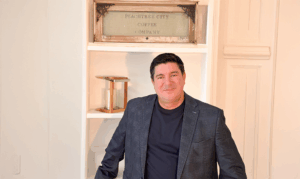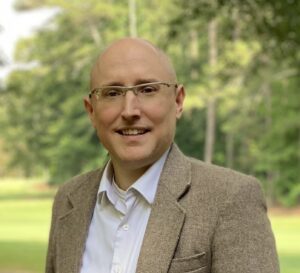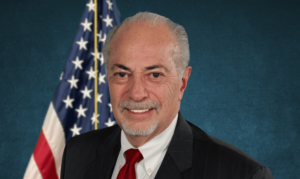Recently, I twice had the opportunity to spend time with local citizens to discuss how they could get involved in local government and make a difference. Both times, I brought up Kathy Cheney.
Kathy Cheney died on Aug. 10, 2014. We are all better off because she lived.
The greatest reward of political office, a gift most in elected office shun, is helping people solve problems. Sometimes, the problem affects only one person or family like a pothole at the end of a driveway or the neighbor’s fence encroaches on your property. Other times, the problem affects a large group like changing a speed limit to protect children near a school site.
Kathy Cheney wanted to resolve a problem that affected both her and the public at large.
Kathy was an Eastern Airlines flight attendant for 20 years. Unfortunately, she flew in the days when smoking was allowed on flights. She worked countless hours, year-after-year, in a fuselage full of cigarette smoke.
She did not smoke, but was later diagnosed with throat cancer, forcing her to take medical retirement. Her work environment and her obvious exposure to cigarette smoke was cited as the reason she became afflicted with a disease most notably attributed to smoking.
Kathy refused to stop trying.
If anyone knew the dangers of exposure to second-hand smoke, it was Kathy Cheney. Kathy became determined to do something about eliminating second-hand smoke from public places. She was on a mission.
As hard as Kathy tried to get local and state government to cooperate on eliminating second-hand smoke in public places, the results were paltry. There was some governmental bloviation on inhaling second-hand smoke being dangerous and a local window sticker program that stated whether smoking was allowed in a building or not, but that was it.
That’s where I enter the story.
After entering as mayor of Peachtree City in 2002, Kathy called me, visited my office, emailed me, called me some more, showed up at meetings and emailed some more about her cause.
I was chin deep in rooting out some unscrupulous elements in city government, a difficult time, and the last thing I needed was another huge cause to fight on an already crowded schedule. But I was swayed.
I more meetings with Kathy in a small conference room in City Hall. I had other things to attend to, lots of other things, but I patiently sat there, listening to every word passionately projecting off her tongue.
Tears began rolling down her cheeks, and the phrase that caught me went something like, “I’m lucky I have survived throat cancer so far and I still have time with my family, but what about the ones who die from the exposure?”
Kathy’s voice was low and raspy because of all the cancer treatments her throat had to endure. The voice, the tears and the concern for others drove me to add another agenda item onto an already overloaded plate.
I told her, “No promises … I would do my best to change things.” Then came the intern.
Max Elias was a good kid, matriculating at Starr’s Mill High School. He was your average run-of-mill high school boy with a good disposition. Little did he know that I was about to put him on the ride of his life.
“Max,” I said, “got a challenging internship project for you.” I went on to explain we were determined to get rid of second-hand cigarette smoke in public places like restaurants and such. The affable young intern said, “OK.”
I told the intern to pull every medical study on second-hand smoke inhalation he could find. Later, I would have him contact experts at the Centers for Disease Control for question and answer sessions.
What Max did not know, but Kathy Cheney had found out, was Georgia was a strong tobacco growing state, the cigarette lobby was powerful and people who smoked wanted to keep smoking everywhere. It was like walking into a buzz saw.
I had to announce to the public what I was working on and it did not go over well.
The thought process was we would have a series of public meetings and form a good ordinance around some helpful public feedback. I was using a broad ordinance as a straw man proposal and the basis for our discussion.
We held the first public meeting in the Floy Farr room in the bottom of the library. The room was a small rectangle with a modest seating capacity. We exceeded that capacity mightily with people standing along with walls, sitting on the floor and crowding the hallway outside, a real fire marshal’s nightmare.
Half the crowd said we were taking away their God-given right to smoke and exhale that smoke wherever they pleased. The other half considered smokers inconsiderate murderers and spreaders of disease. It was like a big family Thanksgiving gathering to the exponential extreme.
We were not four minutes into that first meeting when the screaming and finger-pointing started. People just went after one another with utter viciousness.
I constantly banged on the table, shouted people down and threatened to have the police cart people off if they could not behave. Eventually, I was able to go through the process of how we would consider what to discuss and when. Standing up, I asked everyone to leave peacefully.
I looked over at my intern Max and asked, “What do you think?” He sheepishly replied, “I didn’t think we were going to get out of the room alive.”
A local reporter told me he thought the issue was a no-win situation and alluded that my political obituary was in the works. There were plenty of critics.
Eventually we found the key.
We did not pay our interns, but we did feed them, mainly pizza. I paid for the internship meals out of my whopping $10,000 annual salary for a position which my family allowed me, sacrificially, to work full-time.
Max and I were conversing while eating another marvelous Domino’s peperoni pizza when we found the answer in the midst of our discussion. I noticed it was weird that here we were trying to restrict smoking in public places, but you could legally buy cigarettes at every corner store.
The conundrum was how do you justify restricting a product, saying it is harmful, when the government openly allows it to be sold for consumption at all gas stations and grocery stores?
Our discussion turned to the thought of if the government allows cigarette sales then smoking should be allowed somewhere, perhaps only where adults are present because children cannot purchase cigarettes. The topic evolved into a children’s health issue.
Max and I proposed a new ordinance that allowed smoking in any venue that did not allow children under the age of 18 such as bars and nightclubs. At first, we received loud protests from the American Cancer Society and American Lung Association people who wanted a 100-percent ban.
We were eventually able to convince the non-smoking entities that going from a zero-percent ban on second-hand smoke to 98-percent of all non-residential structures was a good deal.
At the next public meetings in the library, we began gaining approval from both sides. Protecting the children’s health had won the day. Kathy Cheney’s persistence had paid off. The lone voice for years on end won the day.
Our local ordinance worked so well that the state legislature adopted it with minor modifications as state law, making Georgia the first tobacco growing state to pass smoking restrictions, something many pundits said could not be done.
I ended up winning an award along with Kathy Cheney on our efforts to curb second-hand smoke exposure. I have the photo of the two of us affixed to my office wall.
Years later, the Tennessee Legislature passed a similar law. I believe more states will follow.
I am glad we had a Kathy Cheney to force us to look at a serious issue. She was relentless, but she did it for all the right reasons.
The intern Max Elias went on to the University of South Carolina, graduating magna cum laude. Now a grown man with a life of his own, Max is working for a technology company in north metro Atlanta.
The air your family breathes in restaurants and other public places is a lot healthier than what exists in other states all because of the flight attendant and the intern.
You should consider getting involved because wonderful things can happen.
Steve Brown
Peachtree City, Ga.
[Brown is chairman of the Fayette County Commission.]












Leave a Comment
You must be logged in to post a comment.